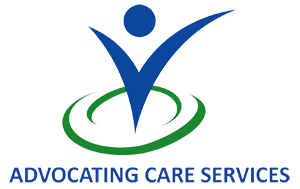How Disability and Self-Care Intersect? Self-care is the idea that you need to prioritize your health and not feel selfish to do so. Particular emphasis on mental health is significant to avoid excess stress and burnout. Physical self-care involves taking rest breaks, getting enough sleep, and keeping properly hydrated and nourished. We like to add one more aspect to the list: your physical surroundings– making sure the spaces where you work and live support your mental and physical health are important as well.
It’s no secret that we live in a very fast-paced society. The reality of toxic productivity can make prioritizing self-care something you feel guilty about. To help ease this feeling, we often use the analogy of flying in an airplane, if you were to lose altitude and the oxygen masks were to come down from the ceiling. The instructions are to put your mask on first before you help your companion because if you don’t, you won’t be able to help them with theirs. But when we think about the nexus of self-care and disability, there is a little bit of added dimension. First of all, we think people living with disabilities or people who live with chronic conditions know how to practice self-care on some level purely out of necessity. Building routines to ease pain, allowing extra time to accomplish a daily living task, and recognizing the signs of burnout far earlier than a non-disabled person might are examples of how every day is a self-care day for some folks. And this isn’t out of indulgence. This is out of necessity.
Think about it for a minute. For all things we can’t control in life, something we can’t predict about the future and all the painfully complicated struggles we face— what is the one thing we can experience the most IN THE MOMENT? Comfort. Am I hot? Am I cold? Am I thirsty? Is the TV too loud? Does that picture on the wall bring me joy or cause me stress? Every day there are a million experiences we have. Some are easier to change than others. But we believe we can be much more proactive agents of creating comfort— no demanding comfort— than we currently are. But arriving at this state of mind takes a lot of self-awareness, and it also takes a healthy dose of self-esteem and stubbornness. You have to be willing to ask yourself the get-real questions, believe that you are worthy of the best, and not give up until you get there.
A different challenge with practicing self-care when you are living with a disability or chronically ill is explaining your limitations to your friends and family, especially if your abilities have declined over time. Yes, of course, family members should be more intimately aware of a loved one’s health and needs, but what about a co-worker, the person bagging your groceries, or the fellow passenger you shared a ride with on public transit? We hope that anyone reading this that is not living with a disability will think beyond what they see or assume of another person’s effort or ability. Leaving that sink full of dishes until tomorrow when you’d really love to wake up to a clean kitchen. Seeing how festive your neighbor has their house decorated and wanting the same for yours. But at the end of the day, you learn to accept that prioritizing self-care in your life– for your life– every day will bring a new negotiation.
Self-Care will mean different things to different people. And it is unrealistic to think comfort can be achieved at all times. But shouldn’t that be the goal? Because at the end of the day, isn’t that what matters? Choose to believe that everyone is doing the best that they can. It makes it easier to find breathing space in accepting each other without judgment or conditions. The more grace and gratitude we extend to each other, the easier it is to care for each other and ourselves.


